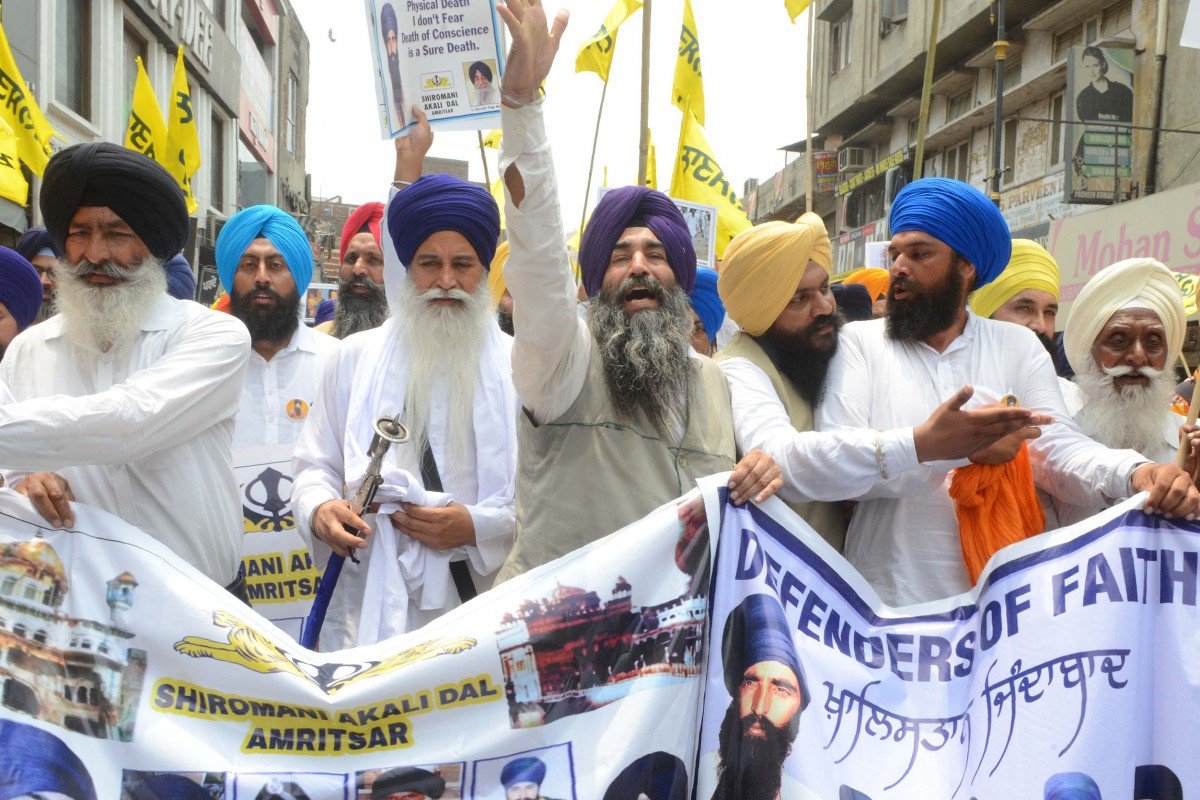Sacrilege incidents, 1984 anti-Sikh riots dominate campaign in Punjab
| Date :18-May-2019 |
CHANDIGARH
IT is religion and not nationalism, unlike in most parts of the country, which is dominating the political discourse in Punjab. However, issues of drug abuse, farmers stress and unemployment also have resonance on the ground.
While the Congress is raking up incidents of sacrilege of the holy book of Sikhs that took place in 2015 in its campaign, for the Shiromani Akali Dal, the 1984 anti-Sikh riots and Operation Bluestar are some issues on which it is relying to revive its fortune. Punjab Chief Minister Amarinder Singh, in his rallies,

has been making a strong case for punishing the culprits for ‘beadabi of Guru Granth Sahib’ (sacrilege of the holy book of the Sikhs), while suggesting that the Badals are responsible for it.
Countering his allegations, SAD president Sukhbir Badal in his rallies had wished that the Almighty may “wipe out the entire khandan (clan)” of those who are behind the sacrilege of the Guru Granth Sahib.
He is also critical of the Congress and its leader Sam Pitroda for his controversial “hua to hua” (whatever happened, happened) comment on the 1984 riots. Many people in the State are more vocal about unemployment, farmers’ distress and drugs. Randhir Singh, a resident of Panniwala Patta in Muktsar district, says, “Sacrilege of the holy book has hurt the sentiments of people and so has Pitroda’s comments. But the anger is more for Guru Grant Sahib’s beadabi.”
At the same time, Randhir, a farmer by, emphasises that farmers in the state are facing problem of low productivity due to depleting ground water and the younger generation is migrating due to unemployment.
Echoing similar sentiments, Rajwinder Sodhi, who runs a dhaba along the Jalandhar-Amritsar highway, says farmers in his village are under debt and selling their land and at the same time nothing has been done to check the drug abuse. Describing the drug issue as “most critical” in Punjab, Roshan Lal, a doctor by profession, says parties are not talking about it.
Talking about the political scenario in the State, Jagroop Sakhon, head of the department of political science in Guru Nanak Dev University in Amritsar, says the studies carried out by him clearly underline that issues such as unemployment, drugs and distress in farm sector are more relevant for common man in Punjab.
“Unemployment, distress in agriculture and drugs abuse are more important and relevant issues for people in Punjab even more than religious issues,” Sakhon says while quoting the study.
On the question of AAP, Sakhon says it appears to be a “finished story”. It had got 24.4 per cent votes in the 2014 Lok Sabha polls and 23.7 per cent in the 2017 Assembly elections.